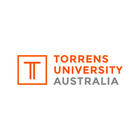Master of Economics of Sustainability
Master of Economics of Sustainability
The Master of Economics of Sustainability advances your career with high-level skills and knowledge in ecological economics, modern monetary theory and financial systems. Develop your critical thinking, problem-solving and reasoning skills. Co-delivered with research institute Modern Money Lab. Learn to analyse economic and ecological issues, discuss economic reform proposals, evaluate…
Categories
COURSE DESCRIPTION
The Master of Economics of Sustainability advances your career with high-level skills and knowledge in ecological economics, modern monetary theory and financial systems. Develop your critical thinking, problem-solving and reasoning skills. Co-delivered with research institute Modern Money Lab.
Learn to analyse economic and ecological issues, discuss economic reform proposals, evaluate consequences of economic policy changes and apply empirical research methods in varying contexts. This unique course is designed to meet the growing global demand for high-quality graduates in the field of economics of sustainable wellbeing. Graduation from this degree will provide you with expanded work opportunities as well as long-term career advancement in a world that is transitioning towards wellbeing budgets and zero net carbon emissions. The Master of Economics of Sustainability degree also provides a pathway to doctoral studies.
Learning outcomes
To meet the learning outcomes of the Master of Economics of Sustainability courses, you are required to demonstrate:
Oral and written communication skills applicable to present advanced concepts related to ecological economics and modern monetary theory, financial and monetary systems to businesses, policy makers, and broader communities.
Analytical and critical thinking skills in drawing economic insights based on varying schools of thoughts in economics and other disciplines.
Problem solving, quantitative and qualitative reasoning skills in analysing economic and ecological issues.
Listening, comprehension and cognitive skills in discussing economic reform proposals and evaluating consequences of economic policy changes.
Critical analysis skills and ability to undertake literature review and to apply empirical research methods in the varying economic policy contexts.
Career opportunities
On graduating from the Master of Economics of Sustainability, you can find work in a wide variety of institutions as economists and in other roles. Potential employers include regulatory agencies, state or federal governments departments, financial institutions and non-financial corporations, and not-for-profit organisations. This qualification is designed to equip you with knowledge and skills that will become increasingly important and in-demand for your career in the years to come. Progression to doctoral studies is necessary if you wish to pursue an academic career.
Potential career paths
Trade Policy Advisor
Sustainable Finance Lead
Financial Analyst
Sustainability Development Adviser
REQUIREMENTS
An Australian bachelor’s degree (AQF Level 7) or equivalent in a business (or related) discipline from a recognised tertiary institution;
OR
Any Australian Bachelor degree (AQF Level 7) or equivalent AND At least 2 years post-degree professional work experience;
AND
Academic IELTS 6.5 (no band less than 6.0) or equivalent.
OR alternative entry requirements may be available. Alternative entry may include assessment and approval of prior study, or successful completion of a readiness assessment.
EDUCATIONAL INSTITUTION
Torrens University Australia was designed with one purpose, employability. It’s at the centre of all that the university does, with industry relevant courses taught by leading experts. The university has strong connections, offering industry placements with more than 3,600 industry contacts.Built on the strong foundations of distinguished schools and colleges, such as Billy Blue College of Design and Blue Mountains International Hotel Management School, Torrens University is Australia’s fastest growing university. All the university’s undergraduate and postgraduate courses are designed with industry, for industry.With faculties in Design and Creative Technology, Business, Hospitality, Education and Health. Torrens University offers flexible higher educational study options on-campus, online or a hybrid of both.




